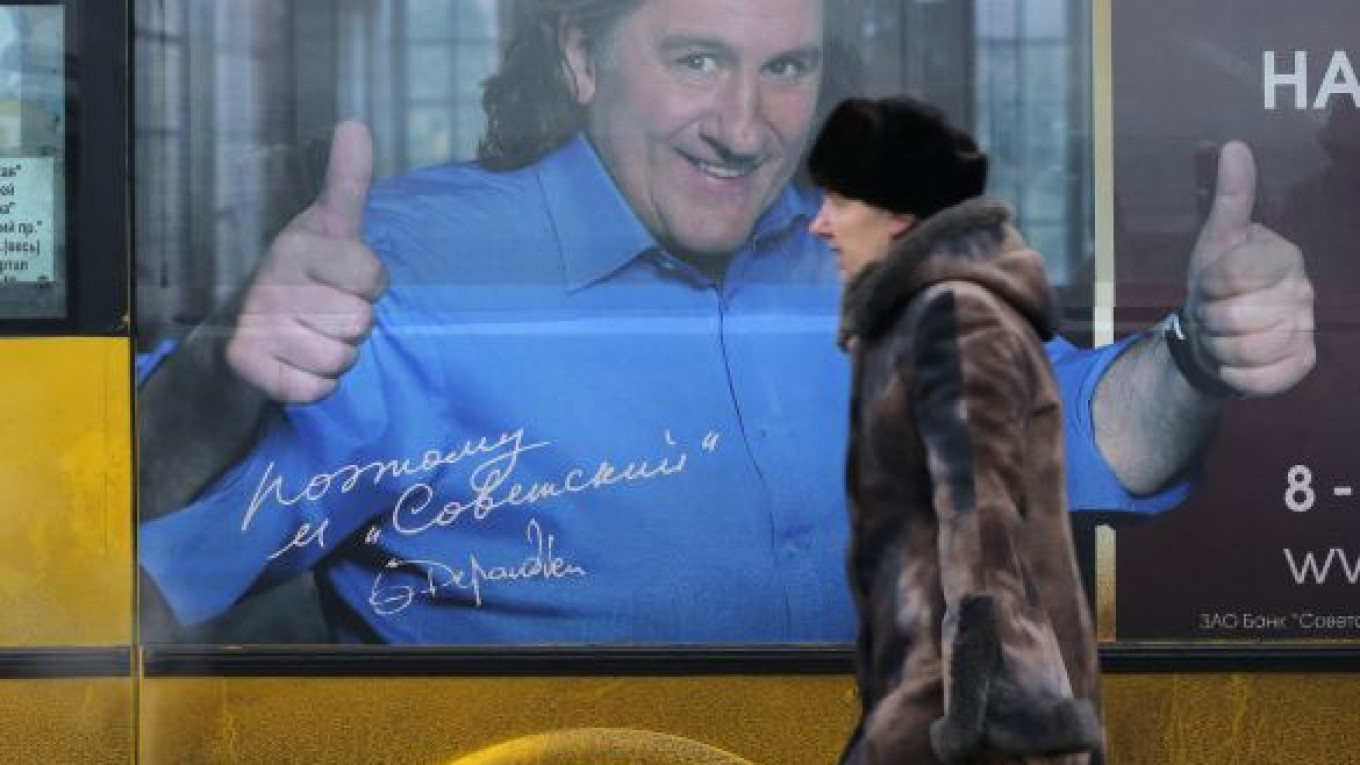When President Vladimir Putin gave Russian citizenship to French actor Gerard Depardieu, the story became the biggest Internet hit and a subject of political controversy over the long New Year’s vacation.
It was the first time in modern Russian history that someone who was not a former spy but rather is a seasoned, global celebrity has become a Russian citizen. Some experts even said that this might be the beginning.
“I am proud that he became a Russian,” said Leonid Dzyunik, a show-business producer who has worked with the controversial pop duet t.A.T.u. and crooner Filipp Kirkorov. “It is sad that many young inspiring stars have not become Russian citizens.”
Dzyunik also said he regretted that another French film star, Annie Girardot, couldn’t become a Russian citizen. “She deserved that,” he said. Like Depardieu, Girardot was a beloved actress in the former Soviet Union and even starred in a Soviet film, “The Journalist,” directed by Sergei Gerasimov in 1967.
The news surrounding Depardieu has brought up memories of other famous foreigners who resided in Russia for various reasons and clinched Russian citizenship.
One of them was American ballet dancer, Isadora Duncan. Known for her Communist sympathies, Duncan took Soviet citizenship after marrying famous Soviet poet Sergei Yesenin in 1922.
Another famous foreign artist who made the Soviet Union his place of residence was the Turkish poet Nazym Khik?met. A staunch Communist, Khik?met spent years in jail for taking part in an underground movement against a right-wing regime. Turkish authorities revoked Khikmet’s citizenship after he escaped to the Soviet Union in 1951.
Khikmet later took Polish citizenship due to his great-grandfather’s roots, though he continued to live in Russia and was buried in Moscow in 1963. The Turkish government reinstated his citizenship in 2009.
Depardieu also has some old Russian connections due to his friendship with Marina Vlady, a French actress and wife of singer and actor Vladimir Vysotsky, who had a cult status in the former? Soviet Union.
“He was a man of fabulous energy, a real volcano,” Depardieu told Izvestia in 2008, recalling his meeting with Vysotsky. “He was singing songs to me, and though I didn’t understand a word, I sensed the meaning. I thought that there was a similarity between us.”
In 1987, Depardieu even told the film magazine Sovietsky Ekran that he was interested in Vysotsky’s offer to play a French prisoner of war who, together with the Russian and Polish prisoners, escapes from a Nazi camp.
Ironically, the actor’s decision to take Russian citizenship was not welcomed by another one of Vysotsky’s friends, film director Stanislav Govorukhin, now a Duma deputy from the ruling United? Russia party.
Govorukhin called Depardieu a “drunkard” and his Russian citizenship a “fraud.”
“I hate this kowtowing to foreigners,” he told reporters.
Related articles:
A Message from The Moscow Times:
Dear readers,
We are facing unprecedented challenges. Russia's Prosecutor General's Office has designated The Moscow Times as an "undesirable" organization, criminalizing our work and putting our staff at risk of prosecution. This follows our earlier unjust labeling as a "foreign agent."
These actions are direct attempts to silence independent journalism in Russia. The authorities claim our work "discredits the decisions of the Russian leadership." We see things differently: we strive to provide accurate, unbiased reporting on Russia.
We, the journalists of The Moscow Times, refuse to be silenced. But to continue our work, we need your help.
Your support, no matter how small, makes a world of difference. If you can, please support us monthly starting from just $2. It's quick to set up, and every contribution makes a significant impact.
By supporting The Moscow Times, you're defending open, independent journalism in the face of repression. Thank you for standing with us.
Remind me later.


